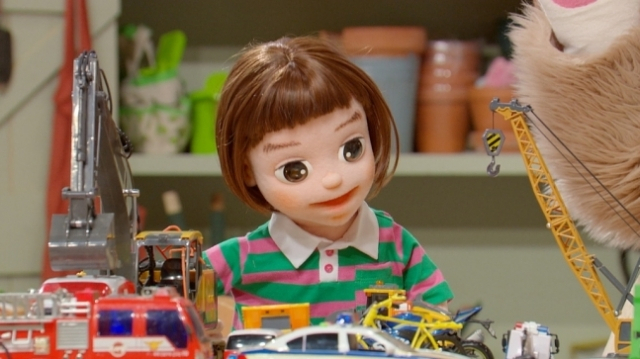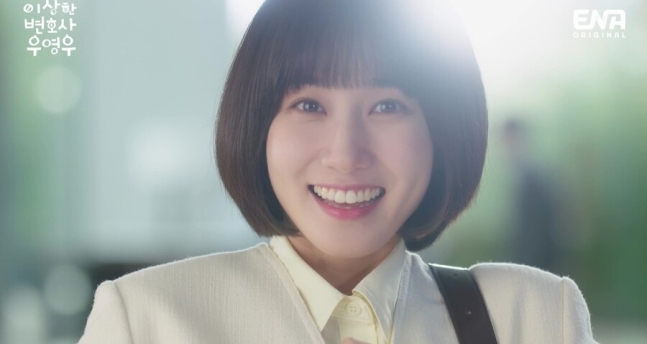 |
Byeori, the newest character on “Ding Dong Dang Kindergarten” (EBS) |
Educational Broadcasting System recently announced that its “Ding Dong Dang Kindergarten” will welcome its first autistic character in its upcoming episode, marking the first time a local children’s show will feature a character with autistic spectrum disorder.
The new character “Byeori” will make her debut on the Friday episode of the show, aired every weekday at 8 a.m.
The show describes the child character as perceiving sound, smell and color more strongly than others and that “understanding Byeori’s world will help one be good friends with her.”
Sensory overload is among the conditions people with ASD experience.
“As a childhood is when one’s perception and attitude toward others sets in, (introduction of Byeori) will present a challenge for the children to learn the value of respect and diversity,” it said in a statement.
Having aired since 1982, "Ding Dong Dang Kindergarten" is among the most popular children’s TV shows in South Korea. The program has featured children characters of diverse backgrounds, including a child of international marriage, one from a divorced family and one with a physical disability.
ASD refers to a broad range of conditions involving neurodevelopment disability, characterized by deficits and social interactions and communications. Formerly called autism, the American Psychiatric Association redefined it as an umbrella term that covers varying conditions that were previously thought to be separate -- including autism, Asperger syndrome and pervasive development disorder.
Characters with ASD in pop culture are nothing new: The 1988 film “Rain Man” featured Academy Award-winner Dustin Hoffman’s portrayal of an autistic savant. In 2015, the Sesame Street featured debuted its first autistic character Julia.
But such portrayals have been rare in South Korea, where autistic people were commonly referred to in derogatory terms in the past due to lack of understanding of their conditions and behaviors. In recent years, however, a growing number of pop culture content here has been featuring autistic characters with deeper understanding of the condition than in the past.
Arguably the most successful such case was 2022 “Extraordinary Attorney Woo,” starring Park Eun-bin as the titular protagonist with ASD who is also an ingenious lawyer. The ENA show was among the biggest hits of the year and sparked interest in the condition.
The show was widely praised for not following the stereotypical portrayal of autistic people, depicting them just as someone who should be constantly taken care of by others.
Some, however, claimed that the show encouraged a potentially hurtful social perception of those with the ASD, and spread false expectations that most of them are highly functional in certain fields.
 |
A scene from “Extraordinary Attorney Woo” (ENA) |
The controversy mirrored one that broke out after release of “Rain Man.” Both cases featured a character with a savant syndrome -- a rare condition in which person with development disorder has outstanding ability in a certain field.
Jang Ji-yong, a co-leader of the group for autistic adults Estas, said in a press interview that one of the biggest “fantasies” about autistic people in Korea is of them being accepted to prestigious universities and holding a regular job. He said that autistic people have hard time receiving tertiary education in South Korea or getting a job at all.
A 2022 survey by the Ministry of Health and Welfare on 1,300 people with autism or intellectual disabilities found that only 11.3 percent of them said they spend their days at work. About 31.8 percent said they spend them at their family’s or parent’s, while 20.2 percent said they spend time alone.
Their biggest concern about the future was being left alone -- 33.4 percent.
Jang had said that the hit drama presented a chance for the Korean society to start discussing autism and the ASD in general, expressing hope that the people will continue to talk about the condition. Appearance of Byeori in the popular children’s show may be an indication of the public’s growing interest in ASD.






![[Lee Byung-jong] The perils of political leadership](http://res.heraldm.com/phpwas/restmb_idxmake.php?idx=644&simg=/content/image/2024/12/19/20241219050082_0.jpg)
